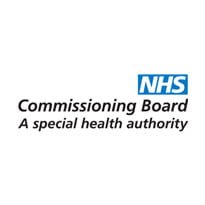The NHS Commissioning Board has published its first planning guidance for the NHS, putting a new focus on outcomes and promising that far more consultant-level outcome data will be published.
The guidance, published this morning, replaces the Operating Framework for the NHS in England that was published by the Department of Health each December.
While the framework was a “to do” list for NHS management, the new guidance says it will support a new principle of “assumed liberty” for the organisations set up by the ‘Liberating the NHS’ reforms.
Instead of implementing national policies and targets, commissioners “will be expected to prioritise and make progress against” the indicators set out in the NHS Outcomes Framework; the massive set of ‘goals’ published at the end of last year.
A new ‘quality premium’ will be paid for clinical commissioning groups that deliver against the framework; although there will also be incentives for CCGs to continue to deliver efficiency savings.
In his introduction to ‘Everyone Counts: Planning for Patients 2013-14’, NHS chief executive Sir David Nicholson says this balancing act will be necessary if the NHS is to continue to improve “while understanding the risks and challenges we now face.”
He acknowledges that the “economic situation means that resources are going to be limited for some time” even as the NHS faces and aging population and growing demand.
“If we don’t get it right, patients will suffer,” he warns, citing recent scandals such as that at the Winterbourne View home and Mid Staffordshire NHS Foundation Trust.
The new guidance recognises that to deliver on its agenda, more and better data will be needed. It says that the NHS Standard Contract “will require all NHS providers to submit data sets that comply with published information standards.”
It also says that Care.data, which it describes as a “modern knowledge service for the NHS” will provide commissioners with both “timely and accurate data.”
Alongside the guidance, the NHS CB released a list of datasets to “increase the amount of data flowing within the NHS” that both NHS providers and private sector providers will be expected to provide.
However, it is the new information services for patients that have caught headlines.
The guidance says that, more than a decade after the Bristol Royal Infirmary Inquiry led to heart surgeons publishing their outcome data, other specialties will follow suit.
Consultant-level outcome data, covering both mortality and other measures of quality, will be published for ten surgical and medical specialties.
The new data will be overseen by a Healthcare Quality Improvement Partnership, or HQIP, which will develop the methodology behind the new releases, which will be published by NHS Choices.
National clinical audits will be published for every consultant in: adult cardiac, interventional, vascular, colorectal, orthopaedic, bariatric, urological, head and neck, and thyroid and endocrine surgery.
Patients will also have other, new sources of data, including “real-time experience feedback from patients and carers by 2015” and the new ‘friends and family test’ of whether patients would recommend a hospital where they were treated to loved ones.
As widely trailed in the Sunday newspapers, the guidance also pledges to move the NHS to seven day working for routine health services.

